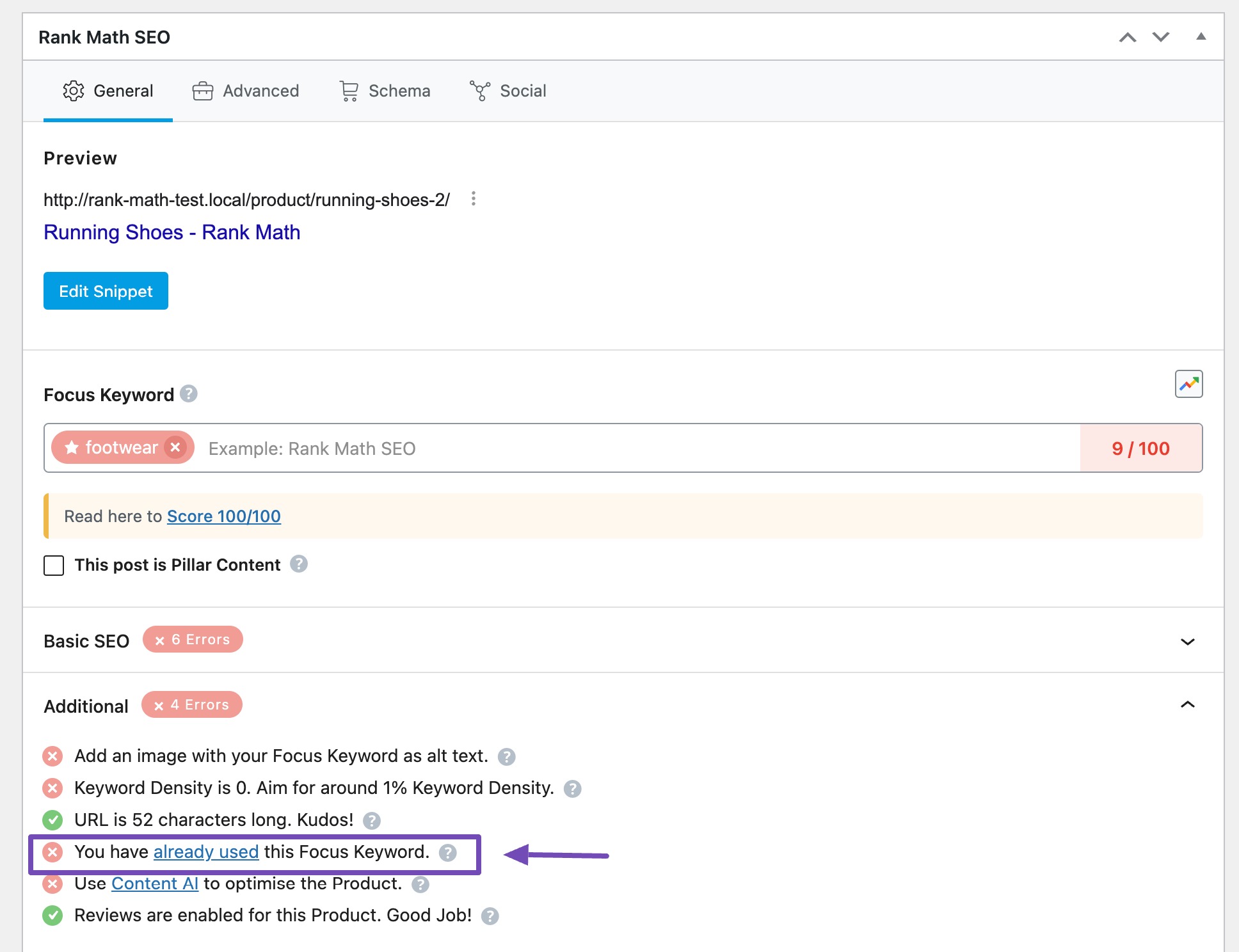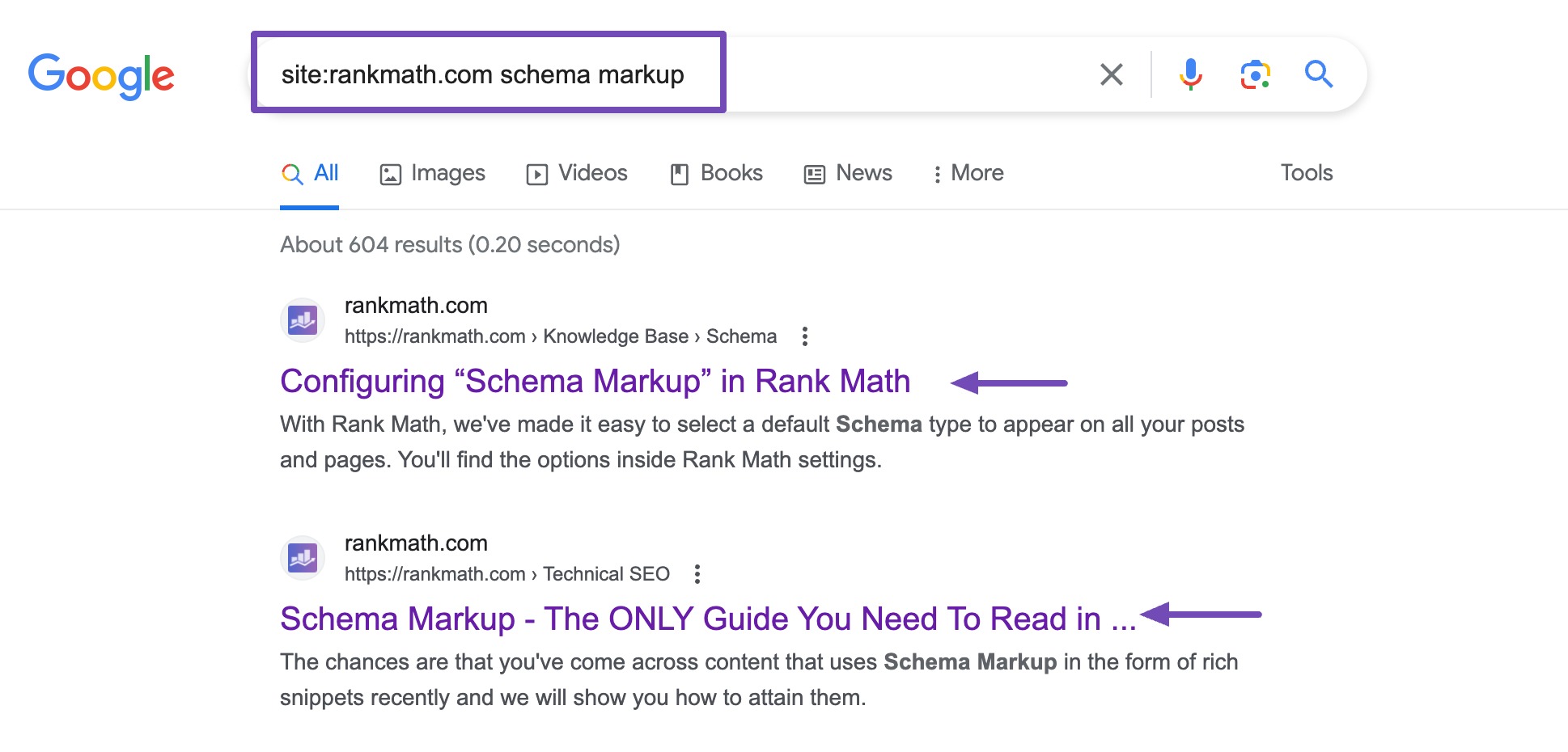Have you ever wondered why some web pages struggle to get noticed by search engines, even when you’re doing your best to use the right keywords?
Well, you might be caught in the web of a sneaky SEO challenge called keyword cannibalization. But don’t worry – understanding and fixing it is simpler than it sounds!
In this post, we’ll explore keyword cannibalization, why it happens, and, most importantly, how you can steer clear of this roadblock.
So, without any further ado, let’s get started.
Table Of Contents
1 What is Keyword Cannibalization?
Keyword cannibalization is when multiple pages within a website compete against each other for the same or very similar keywords.
Imagine you run an online shoe store, and you have separate pages targeting the keywords “running shoes” and “athletic footwear.” If both pages are optimized for the same search terms, search engines might struggle to determine which page to display for relevant searches, potentially resulting in decreased visibility for both the pages.
Therefore, our content analysis test will notify you whenever you optimize a post for a focus keyword you’ve used before.

How does it occur within a website?
Several factors contribute to this issue:
Overlapping Content: When different pages on a website cover similar or identical topics, search engines may find it challenging to differentiate and rank them appropriately.
Multiple Pages Targeting the Same Keyword: If various pages are optimized for the exact same keyword, search engines may have difficulty determining which page is the most relevant to display in search results.
URL Structures Contributing to Cannibalization: The way URLs are structured can also play a role. If URLs for different pages are too similar, search engines might interpret them as targeting the same content, leading to confusion in ranking.
Addressing these issues involves strategic content management and SEO practices to ensure each page serves a distinct purpose and contributes positively to the overall SEO strategy.
2 SEO Impact of Keyword Cannibalization
Let us now discuss the SEO impact of keyword cannibalization.
2.1 Decreased Visibility in Search Engine Results
Keyword Cannibalization can significantly reduce a website’s visibility in search engine results. Search engines might struggle to determine the most relevant page to display for a given search query.
This often leads to a situation where none of the competing pages rank as high as they would if they were optimized individually. As a result, the overall visibility of the website diminishes, and it becomes less likely to appear prominently in search results for the targeted keywords.
2.2 Dilution of Authority and Relevance
One of the important factors that influence a page’s ranking is its perceived authority and relevance to a particular topic or keyword.
In the case of keyword cannibalization, the authority and relevance of individual pages may be diluted. Instead of consolidating authority on a specific topic onto one page, it is spread across multiple pages, reducing the impact each page has in the eyes of search engines.
John Mueller informs keyword cannibalization will dilute the ranking strength of your pages.
This can affect a website’s ability to establish itself as an authoritative source, impacting its overall performance in search engine rankings.
3 How to Find Keyword Cannibalization Issues
As mentioned before, keyword cannibalization can hurt your rankings in search engines. Hence, it’s important to find the issues as soon as possible.
3.1 Run a site: search
Running a site: search for keyword cannibalization is a practical and effective method to identify potential instances of this SEO challenge within a specific domain.
You can isolate search results exclusively from the specified site by utilizing the “site:” operator followed by the website’s domain.
Navigate to Google and search for site:yourwebsite.com "topic". You’ll see all the pages on your site related to that topic.

For instance, one of our blog posts is an in-depth guide on Schema Markup, while another knowledge base article covers the same subject. Even though we’re targeting the same keywords, the distinct focus and purpose of each piece ensure that our rankings aren’t adversely affected.
Depending on the viewers’ search intent, they’re directed to either the blog post or the knowledgebase article that best suits their needs. This strategy allows us to maintain our ranking without compromising user experience.
3.2 Use Rank Math Analytics
To identify keyword cannibalization with Rank Math, utilize the integrated Keyword Rank Tracker for accurate reporting.
Upon running the report, you’ll get a comprehensive view of the keywords for which your content is ranking. For instance, let’s focus on the keyword “SEO tools” below.

The report indicates that, on the specific website in question, only one of the blog posts is ranking for this keyword. Therefore, keyword cannibalization does not occur in this case.
This streamlined approach allows for a clear understanding of how your content is performing for specific keywords without the confusion of overlapping rankings.
Learn more about Rank Math Analytics here.
4 How to Fix Keyword Cannibalization Issues
Let us discuss the ways in which you can fix keyword cannibalization issues.
4.1 Use Redirects
Implement 301 redirects from the cannibalizing pages to the preferred page.
A 301 redirect is a permanent redirect that informs search engines that the content has permanently moved to a new location. This passes the SEO value from the redirected pages to the preferred ones.
For instance: Redirecting from www.example.com/blog/seo-tips and www.example.com/articles/seo-strategies to: www.example.com/blog/ultimate-seo-guide

Keep a close eye on the performance of the preferred page after implementing redirects.
Learn how to set up redirections in Rank Math to create redirections easily.
4.2 Use Canonical Tags
This solution is effective when managing multiple pages that are either very similar or nearly identical.
Use a canonical tag in the HTML head section of the cannibalizing pages, pointing to the preferred page. The canonical tag informs search engines that the specified page is the authoritative version of the given content.
For instance:<link rel="canonical" href="https://www.example.com/preferred-page" />
Canonical tags indicate to Google that the preferred page to appear in search results is the canonical page. This helps to consolidate your ranking power on one page instead of diluting it across multiple URLs.
Refer to our dedicated tutorial to learn more about canonical URLs in detail.
4.3 Optimize Links and Content
Begin by mapping out the target keywords for each page on your website. Identify the primary keyword that each page should focus on.
For instance:
Page 1: www.example.com/blog/seo-tips Primary Keyword: SEO tips
Page 2: www.example.com/articles/seo-strategies Primary Keyword: SEO strategies
If you have multiple pages covering similar topics, consider consolidating them into a comprehensive, authoritative piece. Merge content where applicable to create a single, high-quality page.
In the above example, combine content from Page 1 and Page 2 to create www.example.com/blog/ultimate-seo-guide
Ensure the anchor text used in internal and external links is diverse and contextually relevant. This contributes to a more natural linking structure. Also, create unique and compelling meta titles and descriptions for each page, emphasizing their distinct focus.
Don’t forget to structure your content using appropriate header tags (H1, H2, etc.). This not only helps in readability but also provides clarity to search engines about the hierarchy of the information.
4.4 Perform Content Audits
A content audit is a dynamic and iterative process that plays an important role in maintaining a healthy and effective SEO strategy.
When conducting content audits, consider the following questions:
- Is the relevance of your topics still current?
- Is the information you’re publishing up-to-date?
- Are you prioritizing the correct keywords?
- Which topics and keywords align most effectively with your marketing goals?
5 Frequently Asked Questions
How does keyword cannibalization impact SEO?
It can lead to decreased visibility, confused search engine algorithms, and a dilution of authority and relevance, negatively impacting SEO performance.
Is keyword cannibalization more common on larger websites?
Keyword cannibalization can occur on websites of any size, but larger websites with extensive content are more susceptible.
How do I measure the success of my efforts in resolving keyword cannibalization?
Monitor rankings, organic traffic, user engagement, and conversion rates for affected pages to measure the success of your keyword cannibalization strategies.
Are there tools to identify keyword cannibalization?
Yes, tools like Ahrefs, SEMrush, and Google Search Console can assist in identifying and resolving keyword cannibalization.
Should I consolidate all similar content into a single page?
It depends on the specific case. Consolidation is beneficial when it aligns with user intent and serves a more comprehensive purpose.
6 Conclusion
Fixing keyword cannibalization is like putting things in order for your website. When different pages compete for the same keywords, it confuses search engines. But by sorting out which pages should rank for what, you’re making it clear for search engines and visitors.
Whether you merge information, use redirects, or canonical tags, addressing keyword cannibalization helps your website perform better online. Regular check-ups and fixes are like keeping your website neat and organized, ensuring it does well in searches.
If you like this post, let us know by Tweeting @rankmathseo.
